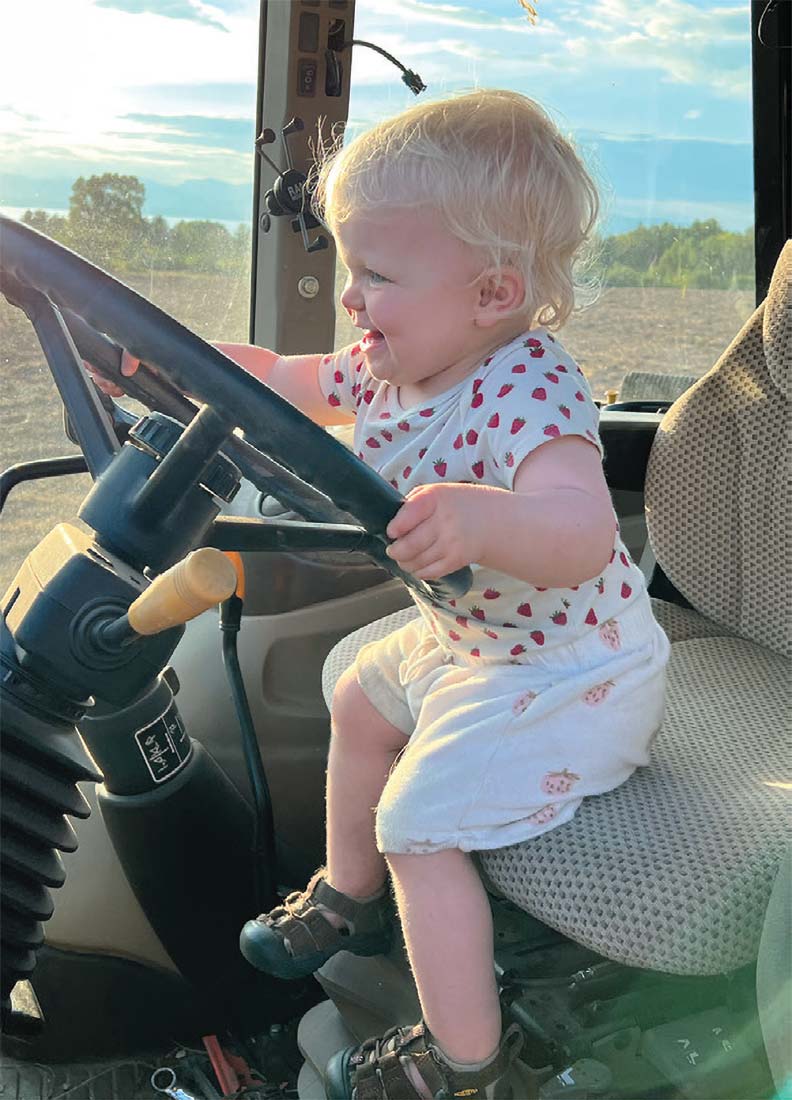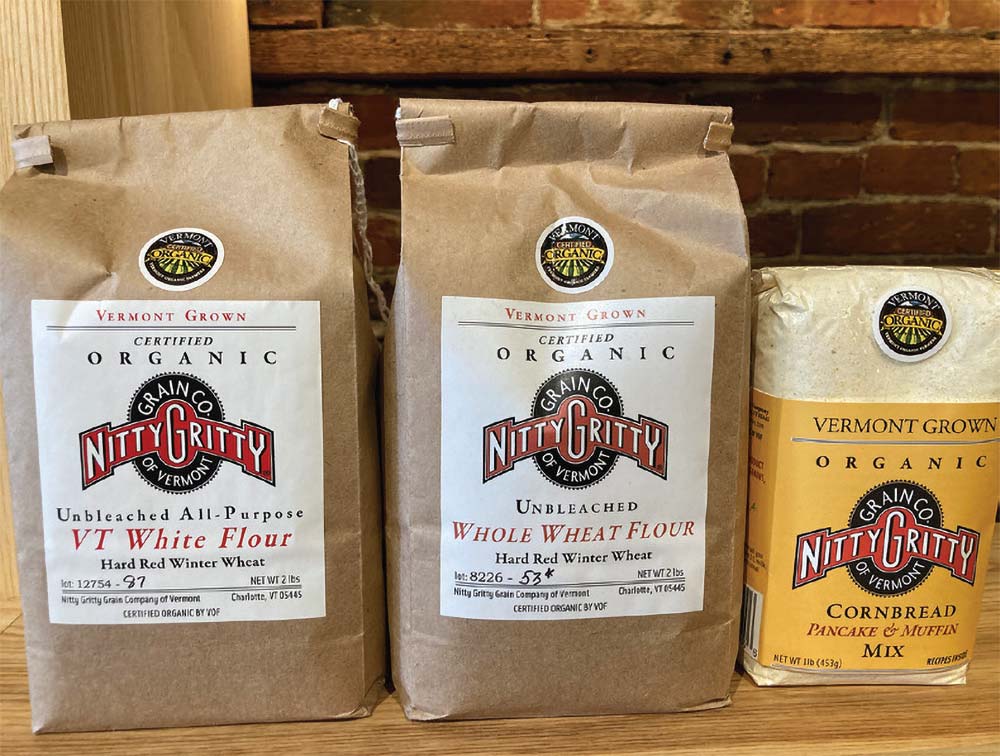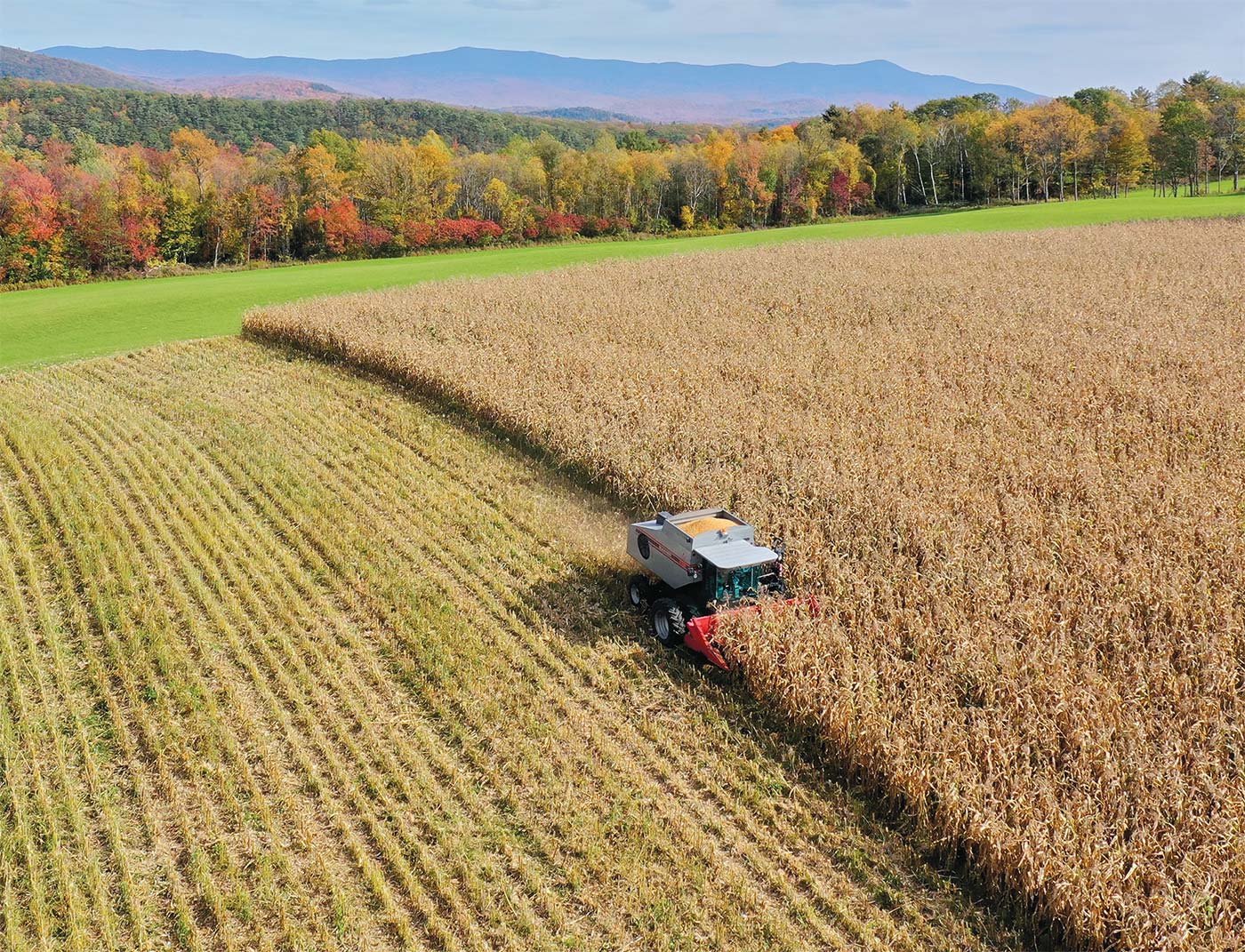Nitty Gritty Grain Company of Vermont, Charlotte
The Kenyon family has been farming in the Champlain Valley for eight generations, including one ancestor who grew grain in Shelburne in the 1770s. Tom Kenyon, a seventh-generation farmer, transitioned from dairy to growing organic grain in Charlotte and Shelburne in the 1980s. He sold his wheat and corn to the commodity market for the first 20 years simply because there was less demand for local flour and cornmeal.
But when a neighbor questioned Tom why she couldn’t find Vermont-grown flour, he realized he had an opportunity. The seed of that idea germinated into the Nitty Gritty Grain Company, established in 2008 at his farm in Charlotte.
Nitty Gritty is a family business run by Tom; his sister, Catherine; and Tom’s son, David Kenyon, the eighth generation. David joined the team in 2019. He spent five years as an architectural designer before trading his office job for a tractor seat—and some phenomenal views of amber fields of grain above Lake Champlain. Tom and David handle the fieldwork while Catherine focuses on the front office: sales, shipping, and the crucial task of mixing and packaging. Catherine came on board in 2010 after she retired from teaching. “Nitty Gritty couldn’t function without Catherine,” David says with an affectionate smile.
The Kenyons grow certified organic wheat and corn on 600 acres spread across Charlotte, Shelburne, and Monkton. Throughout the year, Tom and David plant, tend, harvest, clean, and dry the grains, and then transport the grain to Champlain Valley Milling, the largest organic flour mill in New York, just across Lake Champlain in Willsboro. The milled flour comes back on pallets neatly stacked with 50-pound bags they transfer to a cold-storage room. The steady 40-degree temperature ensures the flour’s quality and longevity. “Our goal is to never have this storage room empty,” David explains.

David Kenyon’s daughter, Charlie, looks happy behind the wheel of their (parked) tractor. She may become the ninth generation of Kenyons to farm in the Champlain Valley! PHOTO: DAVID KENYON
When you see the scale of this operation, you wonder how only three people manage the myriad demands. But that’s why seventh- and eighth-generation farmers succeed: they develop efficient systems to keep their business viable and sustainable. “My goal is to preserve the land and agricultural resources for future generations,” Tom says. “To keep the Kenyon farming legacy thriving here in the Champlain Valley while providing healthy food for our community.”
The family grows three varieties of wheat that get milled into all-purpose white flour, whole wheat flour, pastry flour, and whole wheat pastry flour. They also grow two varieties of hard dent corn: High Meadow traditional yellow corn and Wapsie Valley, an open-pollinated heirloom corn that produces multicolored kernels of blue, red, purple, and gold. Those become the company’s famed cornmeal and cornbread pancake and muffin mix that Catherine blends in small batches to ensure freshness. Nitty Gritty products are easily recognizable, packed in clear bags with a cheerful golden label that bears their red-and-black logo. And yes, those clear packages are recyclable, too, adhering to Tom’s ethos of environmental stewardship.
“We’re super lucky to be in Vermont,” David says. “Consumers here are well informed and passionate about what they’re eating. They’re willing to pay a bit more for organic, local products. Nitty Gritty continues to grow each year, thanks to great support from co-ops and specialty food markets as well as bakeries and restaurants.”
People can also order flour and cornmeal through the CommonDeer.com website. David’s wife, Sarah Beal, owns that popular Burlington shop with her mom, and she’s happy to handle online order fulfillment; 25- and 50-pound bulk orders can be placed directly through Catherine at Nitty Gritty’s website.

Three of Nitty Gritty’s signature organic milled grain products, packaged in recyclable bags. PHOTO: MARIA BUTEUX READE
“We’re super lucky to be in Vermont. Consumers here are well informed and passionate about what they’re eating.” –David Kenyon
David and Tom agree that the biggest challenge to growing grain in Vermont is the changeable climate. “We’re really at the mercy of Mother Nature.” But David is glad he chose to come back and join the family business. “I loved growing up on the farm; the hard work taught me values that I’ve carried through my life. I’m excited for our two daughters to have similar experiences as they get older.”
With any luck, that ninth generation of Kenyons will be driving tractors through their family’s undulating fields of wheat and corn, committed to bringing organic grain and flour to appreciative bakers and consumers.







